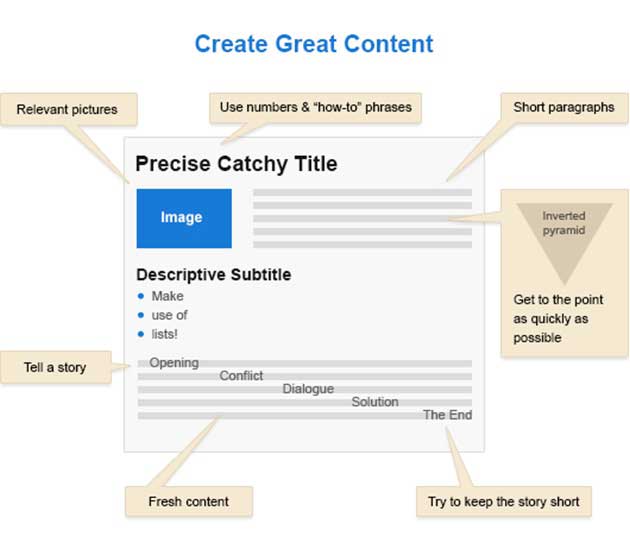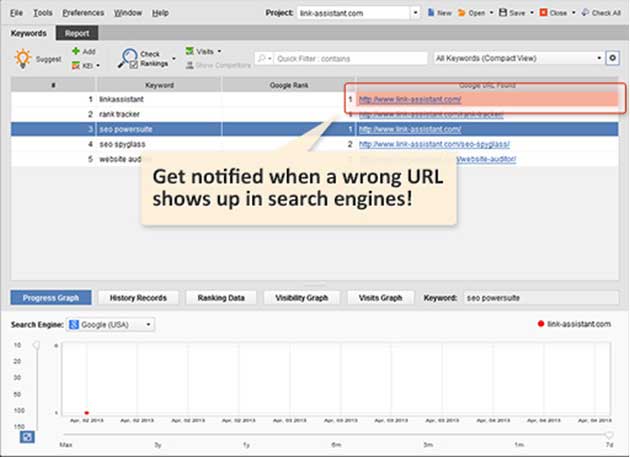One of our clients, Lisa B., runs an online seed store, which features multiple brands and offers various kinds of seeds (flower, vegetable, garden plants, etc.). Lisa's store has a unique selling proposition: The varieties of seeds are exclusive and unusual. Among others, the site had a specific section for rare species, so Lisa wanted a corresponding section of her site to rank for "rare plants and seeds."
However, instead of the desired landing page, the homepage kept showing up in search results for the target term. As a result, people who came from search clearly didn't get the content they wanted, and they left. The result: higher bounce rates, missed conversions, and more people who didn't become lifelong customers.
Lisa's situation doesn't seem unusual: Now and then, we see examples of search queries that could be answered better with another page from the same site.
From the webmaster standpoint, keyword-to-landing page correlation often sounds unpredictable; however, you can take certain actions to increase the chances of a better match.
Here are seven steps to get the right page to rank for the keyword you target.
1. Add more relevant content
On the content side, make sure there's enough written to justify pushing a page to search results.
Even if it's an online store, as in Lisa's case, find a way to add more descriptions to each item and highlight the major selling point.
At this point, it's really a question of whether you have enough content, but we still encourage you to go the extra mile to make sure that the page content is perfect from a user experience angle.
Have a look at a skeleton of a winning landing page, in terms of content:

Here are several suggestions on making your landing page content more compelling:
- It's no secret that people scan content online, not read it, so create nicely formatted pieces of text to help you achieve your content goals: signups, purchases.
- Use images that speak volumes.
- Make titles and subtitles 100% informative.
- If appropriate, tell stories; people love them.
- Use the inverted pyramid writing style: Start with the most exciting facts and gradually add details.
- Make paragraphs really short; one sentence is often enough.
2. Balance your keywords: use co-occurring terms and avoid over-optimization
On the one hand, you should use enough exact-match keywords to show the page is relevant; on the other hand, you should steer clear of over-optimization.
A great way out of that conundrum is to introduce more co-occurring terms—i.e. phrases related to and often accompanying your keyword, in context. Writing about SEO software, for example? Then introduce more specific terms, such as "keyword research," "backlink analysis tool," and "link value checker."
Google has a sophisticated algorithm to define co-occurring terms; and, as Matt Cutts stated, there's an entire Synonyms Team in Google to recognize interchangeable and co-occurring terms.
Co-occurring terms are not restricted to synonyms; still, the above-mentioned example shows that linguistic diversity and natural writing style count.
3. Build up link authority
One of our first explanations to Lisa was that homepages naturally have more links—and, therefore, more authority. That's the major reason they tend to show up in search results instead of specific landing pages.
If your targeted landing page is replaced by a different page deep in the site (as opposed to homepage), find out what the difference is between the numbers of inbound links each page has. Thus, you'll get a quick estimate on the number of links you should get to make the "correct" page to rank.
4. Analyze robots.txt file
Check your robots.txt file to make sure search engines can properly access your target landing page. It might be the case that this or other pages of your site have been occasionally blocked from indexation in robots.txt, noindex meta tag or X-Robots-Tag.
To see any indexation restrictions, you simply add "robots.txt" to your site URL: https://www.yoursite.com/robots.txt
Alternatively, as with many problems with your site, the place to look is your Google Webmaster Tools dashboard (Health > Blocked URLs).
5. Check for improper redirects
If a page relevant to your "cell phones" keyword by mistake got 301-redirected to a wrong URL, that URL can now have better chances to rank for "cell phones" than the page you've intended. Make sure there are no improper redirects influencing your rankings.
6. Help visitors find what they're looking for
Ranking the right page may take time, so take some temporary measures to improve your users experience.
Remember Lisa's story? Her traffic for "rare plants and seeds" was directed to the homepage rather than to a specific site section. A short-lived solution could be to place a banner on the homepage to advertise rare plants and seeds, and thus provide a way of getting to the requested content.
7. Track important keyword-URL matches
How many keywords does a website have? Depending on the size of your site and the range of topics you cover, you'll have about a dozen of high-priority keywords. I believe it's worth creating a keyword-URL match list for each of these important keywords, and to track, along with your regular rank checks, whether "wrong" pages squeeze into your search results.
Here's a skeleton of how such a list may look if you create it manually:
kwd1: https://www.yoursite.com/landingpage1
Kwd2: https://www.yoursite.com/landingpage2
Alternatively, you can use a tool like our Rank Tracker to see whether the right pages rank for your keywords. You can pick a landing page you wish to rank for with a particular keyword, and get notified when a wrong page is found.

Those are some of the methods I suggest using for better focus in landing page optimization. Do you track your keyword-landing page correlations? Do you know of more options for how to make the right pages rank? Share your ideas in the comments!




